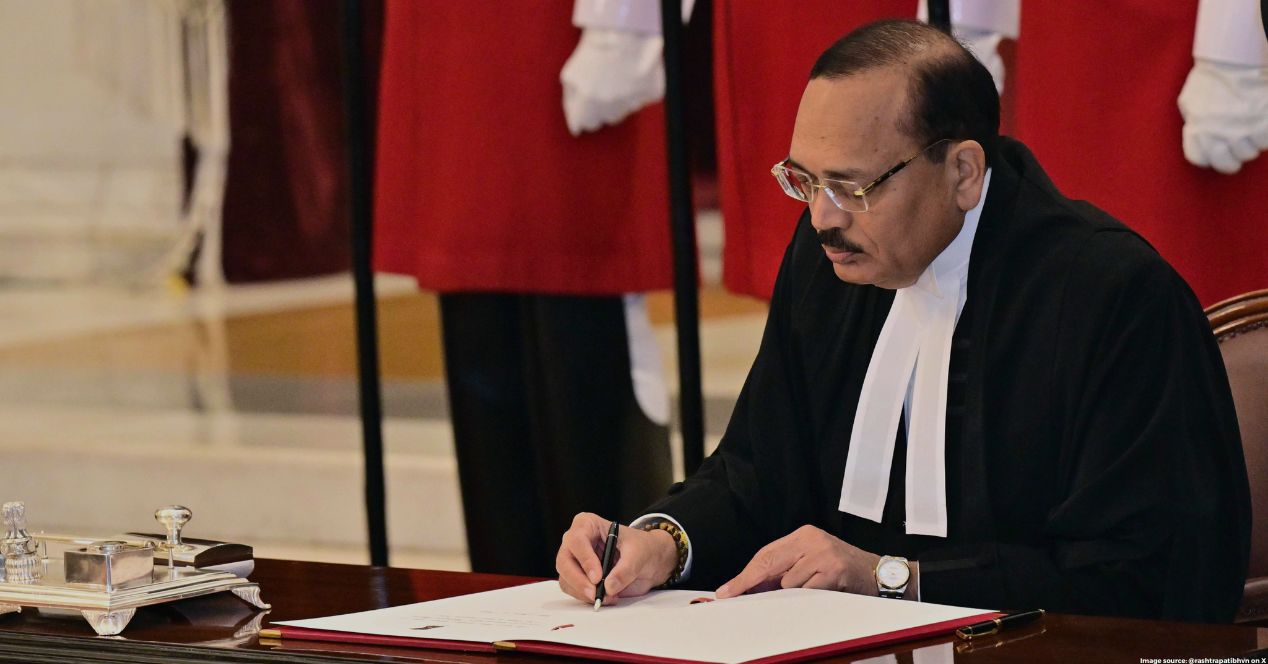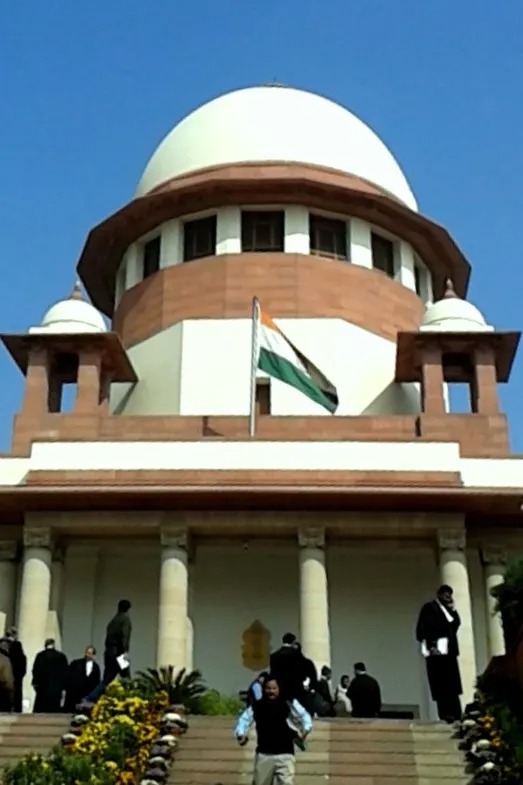Aparesh Kumar Singh, J.@mdashHeard counsel for the parties.
2. The only grievance of the petitioner is that the respondents should regularize his services for the period from 18.10.2005 to 13.8.2008 during which period he was under suspension on account of pendency of a criminal case in which he was acquitted and his suspension was subsequently revoked.
3. It transpires from the Office order dated 18.10.2005 that the petitioner was placed under suspension on his being taken into custody from 28.7.2005 in terms of Rule 99 of the Bihar Service Code now Jharkhand Service Code (Annexure-4). It appears from the judgment rendered by the learned 2nd Additional Sessions Judge, (Hilsa) Nalanda in S.T. No. 844 of 2005 dated 5.8.2008 (Annexure-5) that prosecution of the petitioner along with 3 others was for the offence under Section 498A/ 34 and 304B/ 34 of the Indian Penal Code for committing dowry death of Maya Devi, Grand Daughter of the informant and also cruelty in marriage. After the acquittal of the petitioner his suspension was revoked by the order dated 6.11.2008 (Annexure-8) bearing memo No. 1030 passed by the Superintending Engineer Building Circle No. 2, Ranchi- respondent No. 6. The said order indicates that on petitioner being acquitted of the charges by the Trial Court and he being released from custody on 6.8.2008, the order of suspension is being revoked w.e.f. 14.8.2008 and direction is issued to make payment of salary etc from the date of his joining.
4. Learned counsel for the petitioner submits that once he was exonerated of the criminal charges by the Trial Court, he should be paid full salary for the period of his suspension. Learned counsel for the petitioner has relied upon judgments rendered by the Hon''ble Supreme Court in the case of
5. Respondent- State have appeared and file counter affidavit. Learned counsel for the respondent - State submitted that petitioner is not justified in seeking payment of full salary for the period of his suspension on the basis of the Principle " No Work No Pay" as he was not able to discharge his duties during the period of his suspension. Petitioner had made out a case that he was suffering from Hepatitis from 9.6.2005 to 27.7.2005 and petitioner had submitted his reply on 15.10.2005 for accepting the said period as un-utilized leave. It is only after he has been acquitted by the learned Trial Court that his suspension has been revoked. Therefore, petitioner is not entitled for payment of full salary and other allowances for the period he was not discharging his duties. Learned counsel for the respondent- State has further submitted that the prosecution was not at the behest of the Employer rather by a private person aggrieved.
6. I have heard counsel for the parties and gone through the relevant materials on record. The factual background as indicated herein above shows that the petitioner was placed under suspension on account of his being taken into custody in terms of Rule 99 of the Jharkhand Service Code. Prosecution was not at the behest of the Employer rather at the instance of a private person aggrieved i.e. Grandmother of the deceased lady under the provision of section 498A/ 34 and 304B/ 34 of the I.P.C. Petitioner, therefore was not able to discharge his duties for the period of suspension not on account of any failed prosecution instituted by the respondent- Employer. Respondents have, after the acquittal of the petitioner in the criminal case duly revoked his suspension and also directed to make payment of salary from the date of his joining.
7. In the judgment relied upon by the petitioner rendered by the Hon''ble Supreme Court in the case of Bramha Chandra Gupta(Supra), the person concerned was prosecuted for an offence in respect of Indian Arms Act and Indian Explosive Substance Act and was acquitted later on by the Trial Court. He was never hauled up in a departmental inquiry in the said case. It appears that the Hon''ble Supreme Court keeping in view of the facts of the case that the Appellant was never hauled up for departmental inquiry, that he was prosecuted and had been ultimately acquitted, and on being acquitted he was reinstated and was paid full salary for the period commencing from his acquittal and further that even for the period in question the concerned authority has not held that the suspension was wholly justified because three-fourth of the salary is ordered to be paid, the Hon''ble Supreme Court was of the opinion that the approach of the Trial Court are correct and unassailable and therefore, order of learned Trial Court was restored. In another judgment relied upon by the petitioner rendered by the learned Single Judge of this Court in the case of Prasenjit Ghosh (Supra) reference has been made to Rule 97 of the Service Code and it has been held that he would be entitled to full allowance which he would have been entitled had he not been dismissed, removed or suspended. Learned Single Judge, in the said case found that the Principle of "No Work No Pay" will not apply in the facts and circumstances of the present case and he was directed to be paid full salary for the entire period of his suspension.
8. In the instant case, the prosecution was not at the behest of the Employer rather the Employer in fact suffered on account of the absence of discharge of duties by the petitioner after being implicated in a criminal case by a private person. Respondents have duly reinstated the petitioner from suspension after his acquittal and he has been allowed full salary from the date of his joining. In this regard, the judgment of the Hon''ble Supreme Court in the case of
"Para 4:- On a careful consideration of the matter and the materials on record, including the judgment and orders brought to our notice, we are of the view that it is well accepted that an order rejecting a special leave petition at the threshold without detailed reasons therefor does not constitute any declaration of law by this Court or constitute a binding precedent. Per contra, the decision relied upon by the appellant is one on merits and for reasons specifically recorded therefor it operates as a binding precedent as well. On going through the same, we are in respectful agreement with the view taken in Ranchhodji. If prosecution, which ultimately resulted in acquittal of the person concerned was at the behest of or by the department itself, perhaps different considerations may arise. On the other hand, if as a citizen the employee or a public servant got involved in a criminal case and if after initial conviction by the trial court, he gets acquittal on appeal subsequently, the department cannot in any manner be found fault with for having kept him out of service, since the law obliges a person convicted of an offence to be so kept out and not to be retained in service. Consequentially, the reasons given in the decision relied upon, for the appellants are not only convincing but are in consonance with reasonableness as well. Though exception taken to that part of the order directing reinstatement cannot be sustained and the respondent has to be reinstated in service, for the reason that the earlier discharge was on account of those criminal proceedings and conviction only, the appellants are well within their rights to deny back wages to the respondent for the period he was not in service. The appellants cannot be made liable to pay for the period for which they could not avail of the services of the respondent. The High Court, in our view, committed a grave error, in allowing back wages also, without adverting to all such relevant aspects and considerations. Consequentially, the order of the High Court insofar as it directed payment of back wages is liable to be and is hereby set aside."
9. Therefore, considering the fact that the Hon''ble Supreme Court in the judgment rendered in the aforesaid case of Jaipal Singh(Supra) has rendered the principle of law on the very issue involved, this Court is inclined to follow the principle laid down therein while considering the case of the present petitioner.
10. Therefore, since the petitioner was not prosecuted by the Employer, who actually had suffered due to absence of the petitioner in discharging his duties due to his incarceration and prosecution in a criminal case instituted by a private person for the offence under Section 498A/ 34 and 304B/ 34 of the I.P.C., the principle as laid down in the said judgment are applicable to the facts of the instant case. Therefore, no relief can be granted to the petitioner so far as his claim for full salary for the period under suspension is concerned.
11. The writ petition is accordingly, dismissed.

